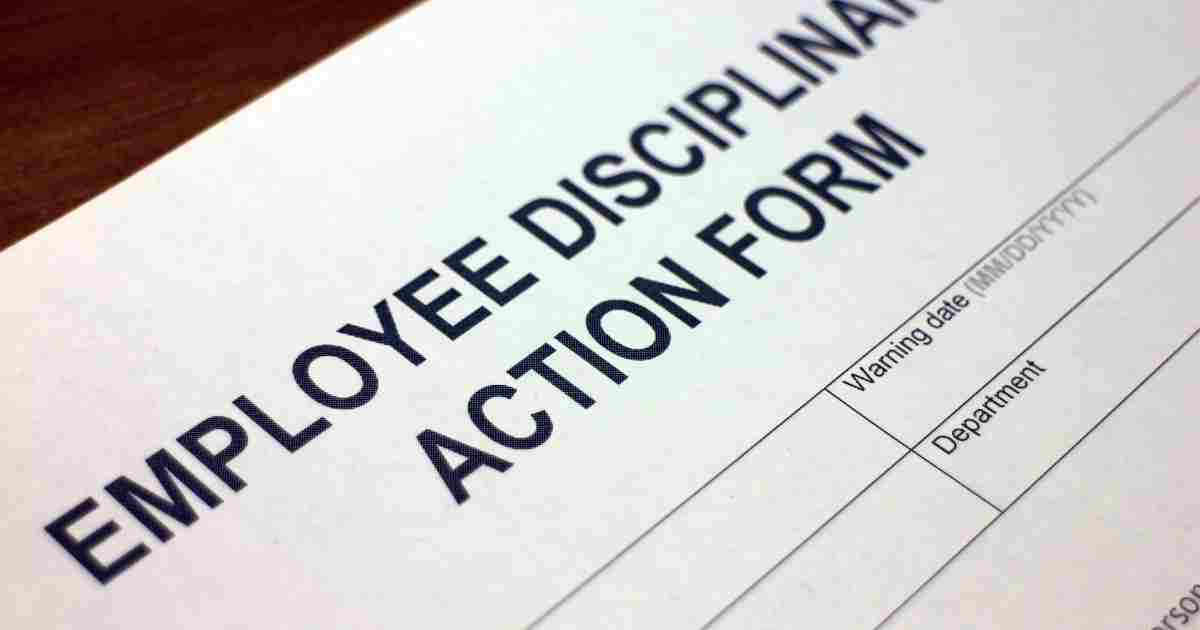
Disciplinary hearings are not a nice thing for employees and senior management. These hearings usually happen after a series of events that have caused problems within the company and between colleagues.
For business owners, disciplinary hearings need to be handled properly by your HR representative. If you don’t have an HR person, we are going to give you tips on how to handle a disciplinary hearing.
Disciplinary hearings are done to ensure that accused employees have an opportunity to lead evidence in rebuttal of the charge. Additionally, it serves as an opportunity for the employee to challenge the assertions of their accusers before a decision is taken.
In this article, we look at disciplinary hearings and tips on how to conduct your own.
Minimum Requirements for a Fair Disciplinary Hearing
You can’t just conduct a disciplinary hearing. There are certain requirements that need to be met before you can go ahead. Some of the requirements for a disciplinary hearing include:
1. The Employee Has a Right to be Informed
When laying out the charges to the accused employee, you need to make them clear. You also need to inform the employee in advance of the charges they are required to answer. This requirement comes from the need for adequate preparation to ensure the accused has time to prepare their defence.
2. The Hearing Must Not Be Delayed
A disciplinary hearing must be convened as soon as possible after the incident. This helps to keep facts fresh in the minds of the parties involved and their witnesses.
3. Employee Must Have a Right to be heard and Present Their Defence
Accused employees have a right to present their defence on the charges against them. They need to be given an opportunity to lead evidence in rebuttal and to challenge the assertions of their accusers before an adverse decision is made.
4. The Hearing Must Have All Required Parties Present
When conducting a disciplinary hearing, there are certain individuals that need to be present. In most companies you need: a chairperson, management representative, employee and their representative, any witnesses and an interpreter if needed.
These requirements are just the basics for a disciplinary hearing. When drafting company policies, you should also make plans for disciplinary hearings and how you will conduct them.
Employee Rights in a Disciplinary Hearing
Not only does the accuser and business entity have rights in a disciplinary hearing but so does the accused party. You need to know what their rights are in order to conduct a fair hearing.
The accused employee has the following rights in a disciplinary hearing:
- Right to be informed of all the allegations in clear writing.
- Right to representation in the form of a lawyer, fellow colleague or union representative.
- The right to a fair and unbiased hearing.
- Right to present their own evidence and witnesses.
- Right to cross-examine any witnesses presented by the accuser.
- Right to appeal the decision after the hearing.
- The accused has a right to privacy during the disciplinary process.
- The accused has a right to be treated with respect no matter what the accusations against them are.
Now that you are aware of what is needed from you and the rights of the accused employee, you can begin learning how to conduct your own disciplinary hearing.
How to Conduct Your Own Disciplinary Hearing
The below tips can help you conduct a fair and objective disciplinary hearing in your business.
Tip 1: Explain the Complaint
When starting the hearing, you need to clearly explain the complaint so that the accused is not confused about why they are in a hearing.
Tip 2: Go Through Presented Evidence
You have to present all gathered evidence of the employee’s behaviour. This will support the complaint you presented in the first step.
Tip 3: Give Them a Chance to Defend Themselves
As mentioned above, the accused employee has a right to defend themselves. You have to allow them an opportunity to explain their behaviour.
Tip 4: Decide on What the Next Steps Are
Once all evidence has been presented and defended, you will need to decide on what disciplinary action you are going to take.
The disciplinary action could be any of the following:
- No action taken
- Written warning
- Final warning
- Termination of employment
Tip 5: Allow the Accused to Appeal the Final Decision
The fairness of a disciplinary hearing does not end when the hearing ends. Once a decision is made, the accused has a right to challenge the decision, and you need to be fair in hearing them.
Tip 6: Write Down Everything
Whether before, during or after the hearing, you need to keep a record of everything that has been said, evidence gathered, copies of e-mails or letters and witness statements. In the event that the accused appeals the final decision, you will need to keep a record of it.
Using these tips and your internal disciplinary policies, you should be able to conduct a fair and unbiased hearing.
For more information on everything HR, read SME South Africa’s Guide to Human Resources in the Workplace. To speak to an expert, head on over to SME Advice and book an appointment.








